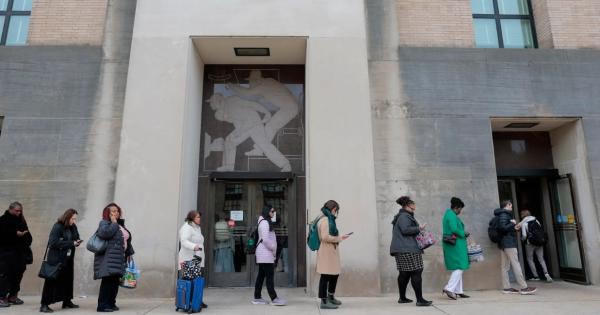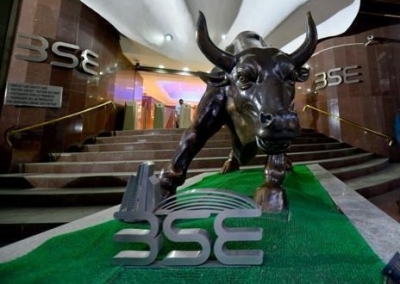Impact of US-Vietnam Trade Deal on Asian Markets and Tariffs

A new trade agreement between the United States and Vietnam, announced by former President Donald Trump, has set new tariff rates for Vietnamese exports, though initial market reactions, particularly in Hanoi, have been lukewarm. This deal comes just days before a broader July 9 deadline set by Trump for other nations to finalize trade pacts, aiming to avoid his previously announced “reciprocal” levies.
Under the terms of what Trump dubbed the “Great Deal of Cooperation,” imports of Vietnamese goods into the US will face a 20 percent tariff. This is a significant reduction from the 46 percent levy initially proposed as part of the April 2 tariff blitz. Additionally, goods that pass through Vietnam to circumvent steeper trade barriers, a practice known as “transshipping,” will incur a 40 percent tariff. On Vietnam’s part, the agreement stipulates that the nation will provide total access to its markets for US products, meaning American goods can be sold into Vietnam at zero tariff. Vietnamese officials have confirmed this as a framework agreement, reiterating their commitment to preferential market access for US goods, including large-engine vehicles, and pushing for US recognition of Vietnam as a market economy and the lifting of restrictions on high-tech exports.
Despite the tariff reduction, traders in Hanoi were unimpressed, with the Vietnamese capital’s stock market falling in early trade. This sentiment was echoed across much of Asia, where stocks struggled on Thursday. While Wall Street’s S&P 500 and Nasdaq achieved record closes, this did little to lift buying sentiment elsewhere. Major Asian markets including Hong Kong, Shanghai, Tokyo, Sydney, and Wellington all experienced declines, though Singapore, Seoul, Taipei, Manila, and Jakarta saw slight gains. Dealer caution stemmed from the fact that Vietnam must still pay significant tolls, and uncertainties surrounding the definition and enforcement of “transshipping” provisions. The deal provided some hope that other governments could reach agreements with Washington, yet with only three countries having done so before the deadline, worries persist about fresh market turmoil if Trump’s “Liberation Day” measures fully kick in.
The broader economic landscape also influenced market sentiment. The US dollar eased as traders increased rate cut bets after data unexpectedly showed the private sector shed jobs in the prior month for the first time since March 2023, suggesting a slackening labor market. This occurred ahead of the much-anticipated non-farm payrolls report, which guides Federal Reserve policy. While two rate cuts are widely expected this year, there’s growing speculation of a third, possibly as early as the July meeting. Meanwhile, US Treasury yields rose amidst fresh worries in the bond market over Trump’s proposed tax-slashing budget bill, which independent analysis suggests could add $3 trillion to the already colossal US national debt, potentially dealing a blow to the world’s largest economy.
Vietnam has emerged as a major manufacturing hub for global brands such as Nike, Apple, Gap, and Lululemon, largely benefiting from firms relocating factories out of China to avoid tariffs imposed during Trump’s first term. Initially, share prices of companies manufacturing in Vietnam rose on news of the deal, though these gains were trimmed once the 20% tariff became clear. Adam Sitkoff of the American Chamber of Commerce in Hanoi expressed optimism, noting the deal leaves Vietnam in a good position for companies shipping goods to the US. Separately, the Trump family has announced significant development projects in Vietnam, including a $1.5 billion investment in hotels, golf courses, and luxury real estate with Kinh Bac City Development, and plans for a Trump Tower in Ho Chi Minh City.
This agreement, similar to recent trade deals with Britain and China, is more of a framework than a final pact. Nevertheless, it provides a diplomatic and economic win for Donald Trump as numerous nations scramble to negotiate and avoid stiffer tariffs ahead of the looming deadline for his “America First” economic policy.
Recommended Articles
The Dismantling of American Health Care

On July 4 President Donald Trump signed into law a piece of legislation that amounts to a declaration of war on the work...
Bitcoin's Recent Rally Wipes Out over $1B in Bearish Bets | Markets Insider

Bitcoin’s Recent Rally Wipes Out over $1B in Bearish Bets
US senators warn Nvidia CEO about upcoming China trip

In May at the Computex trade show in Taipei, Huang praised President Donald Trump's decision to scrap some artificial ...
Market drifts lower amid tariff jitters, Q1 earnings season key to lift sentiment

Market drifts lower amid tariff jitters, Q1 earnings season key to lift sentiment - Mumbai, July 12 Markets drifted lowe...
Market drifts lower amid tariff jitters, Q1 earnings season key to lift sentiment

Market drifts lower amid tariff jitters, Q1 earnings season key to lift sentiment - Mumbai, July 12 Markets drifted lowe...
Safe-Haven Demand Strengthens Gold Prices

Gold prices climbed on July 11, buoyed by safe-haven demand amid ongoing geopolitical uncertainty and heightened volatil...
You may also like...
Diddy's Legal Troubles & Racketeering Trial

Music mogul Sean 'Diddy' Combs was acquitted of sex trafficking and racketeering charges but convicted on transportation...
Thomas Partey Faces Rape & Sexual Assault Charges

Former Arsenal midfielder Thomas Partey has been formally charged with multiple counts of rape and sexual assault by UK ...
Nigeria Universities Changes Admission Policies

JAMB has clarified its admission policies, rectifying a student's status, reiterating the necessity of its Central Admis...
Ghana's Economic Reforms & Gold Sector Initiatives

Ghana is undertaking a comprehensive economic overhaul with President John Dramani Mahama's 24-Hour Economy and Accelera...
WAFCON 2024 African Women's Football Tournament

The 2024 Women's Africa Cup of Nations opened with thrilling matches, seeing Nigeria's Super Falcons secure a dominant 3...
Emergence & Dynamics of Nigeria's ADC Coalition

A new opposition coalition, led by the African Democratic Congress (ADC), is emerging to challenge President Bola Ahmed ...
Demise of Olubadan of Ibadanland
Oba Owolabi Olakulehin, the 43rd Olubadan of Ibadanland, has died at 90, concluding a life of distinguished service in t...
Death of Nigerian Goalkeeping Legend Peter Rufai

Nigerian football mourns the death of legendary Super Eagles goalkeeper Peter Rufai, who passed away at 61. Known as 'Do...